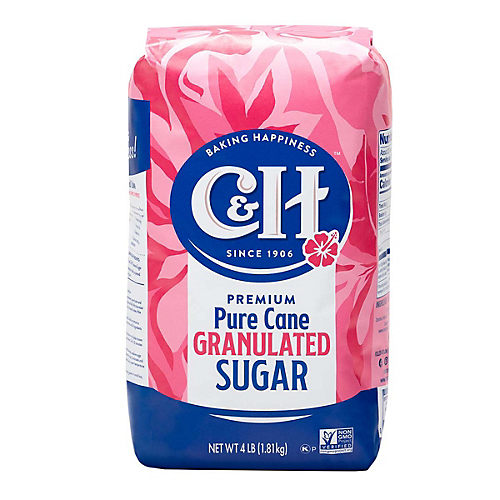Comprehending Cane Sugar Processing: A Comprehensive Summary of the Stages
Comprehending Cane Sugar Processing: A Comprehensive Summary of the Stages
Blog Article
An In-depth Summary of the Health And Wellness and Economic Implications of Walking Cane Sugar Handling on Neighborhood Areas
Cane sugar processing plays an essential function fit the economic landscape of local neighborhoods, using job opportunity and promoting secondary industries. Nevertheless, the health ramifications related to high sugar consumption can not be overlooked, as they add to climbing prices of excessive weight and diabetes mellitus. This nuanced dynamic welcomes an essential exam of just how neighborhoods can enhance economic gains while resolving the pressing wellness challenges they deal with. The exploration of lasting techniques and instructional initiatives might simply hold the trick to integrating these clashing rate of interests. What approaches might communities implement to achieve this balance?
Economic Benefits of Cane Sugar Handling
Walking stick sugar handling provides considerable financial benefits that extend past the prompt agricultural market. The cultivation and handling of sugarcane create countless work opportunities, from farming to production and circulation. This employment generation not only supports regional economic situations but also promotes neighborhood advancement by supplying secure revenue sources for family members.
In addition, the sugar industry promotes supplementary services, consisting of transport, devices supply, and packaging services (Cane Sugar Processing). As these fields grow, they add to a much more durable economic structure, enhancing overall neighborhood resilience. The export possibility of processed cane sugar better enhances economic benefits, placing areas as competitive gamers in global markets
Financial investment in modern-day handling facilities can result in raised efficiency and effectiveness, therefore decreasing waste and optimizing source use. This change not only profits the neighborhood economic situation however also supports sustainability efforts by decreasing ecological influences.
In addition, the profits created from cane sugar handling can be reinvested in neighborhood infrastructure, education, and health care, advertising all natural community development. On the whole, the economic benefits of walking stick sugar processing are multifaceted, giving a structure for enduring prosperity in agricultural areas.
Wellness Threats Connected With Sugar Consumption
Excessive sugar consumption presents significant health and wellness threats that warrant serious focus. High consumption of included sugars, particularly from refined drinks and foods, has actually been connected to numerous health and wellness issues.
Furthermore, high sugar usage is connected with heart disease. Raised blood sugar level degrees can bring about insulin resistance, a precursor to numerous heart-related concerns. Additionally, sugar can have detrimental results on dental wellness, resulting in tooth cavities and gum tissue illness, as bacteria in the mouth flourish on sugar, generating acids that wear down tooth enamel.
Additionally, arising research study suggests a prospective link between high sugar intake and psychological wellness conditions, such as depression and anxiety. As communities face these health and wellness risks, it ends up being vital to promote understanding and motivate healthier dietary options. Resolving sugar intake is essential not only for private wellness but additionally for the overall health of neighborhood neighborhoods, stressing the demand for comprehensive public wellness approaches.
Ecological Influences of Sugar Production
Often forgotten in discussions regarding sugar's implications is the considerable environmental effect of sugar manufacturing. The cultivation of sugarcane commonly requires comprehensive land usage, resulting in deforestation, loss of biodiversity, and disruption of neighborhood ecosystems. The conversion of forests and wetlands right into sugar vineyards can result in environment destruction, harmful many varieties and modifying environmental balance.
Additionally, sugar production is resource-intensive, consuming substantial quantities of water for irrigation. This can lead to deficiency of neighborhood water resources, negatively impacting both agricultural practices and area access to clean water. Furthermore, making use of chemical plant foods and chemicals in sugarcane farming can add to dirt deterioration and water pollution, as runoff from these chemicals enters nearby rivers and lakes, affecting aquatic life and human health and wellness.
The ecological impact encompasses the processing stage, where power intake and waste generation further aggravate ecological worries. Air pollution from shedding sugarcane fields, in addition to greenhouse gas emissions, add to climate modification. As such, the environmental ramifications of sugar manufacturing warrant major consideration, prompting stakeholders to take on even more lasting methods to mitigate these damaging results on neighborhood ecological communities and neighborhoods.
Work Development and Area Development
The ecological difficulties positioned by sugar production are frequently counteracted by its potential for financial advantages, specifically in work development and community growth. The walking cane sugar sector acts as a substantial source of employment in several backwoods, offering jobs throughout various ability degrees, from agricultural labor to processing and distribution roles. This employment not only supports specific households but likewise adds to the total economic vigor of neighborhood communities.
In addition, the facility of sugar the original source handling centers stimulates supplementary businesses, such as transportation solutions, equipment supply, and maintenance providers. As these companies grow, they produce extra jobs and strengthen local economic situations. The income created from the sugar sector likewise leads to increased tax incomes, which can be reinvested into neighborhood solutions such as education and learning, facilities, and health care growth.
In addition, the sugar sector usually engages in neighborhood growth campaigns, such as sustaining regional schools and wellness programs, thereby boosting the lifestyle for residents. By cultivating solid area ties and advertising financial development, the walking cane sugar handling industry plays a vital function in uplifting neighborhood populations, making it a vital component of lasting growth methods in sugar-producing areas.
Balancing Health And Wellness and Economic Development
In browsing the complexities of cane sugar processing, an essential difficulty exists in stabilizing wellness factors to consider with economic development. The sugar sector considerably adds to regional economies by creating jobs, stimulating related markets, and boosting tax obligation profits. Nonetheless, the health ramifications connected with extreme sugar intake can result in chronic conditions such as weight problems, diabetes, and cardio issues, which can problem public health and wellness systems and reduce labor force efficiency.

Moreover, governing frameworks can play a pivotal duty in leading sector practices towards even more lasting and health-conscious techniques. By fostering collaboration in between government bodies, health and wellness organizations, and the sugar industry, areas can navigate the duality of health and economic development, making certain that the advantages of walking check this stick sugar handling are equitably shared while focusing on public health and wellness.
Conclusion
Finally, the handling of walking cane sugar presents both significant financial benefits and significant wellness threats for local areas. While it cultivates job creation and stimulates regional advancement, the associated health worries, especially pertaining to excessive weight and diabetes mellitus, demand a cautious balancing act. By promoting accountable usage and investing in neighborhood education and sustainable techniques, it is possible to optimize financial advantages while decreasing damaging health and wellness results, thus making certain a healthier future for local populations.
Furthermore, sugar can have destructive impacts on dental health and wellness, resulting in cavities and periodontal condition, as microorganisms in the mouth flourish on sugar, generating acids that deteriorate tooth enamel.
Resolving sugar usage is vital not just for specific health but likewise for the total wellness of regional neighborhoods, highlighting the demand for thorough public health and wellness methods.
Regularly overlooked in conversations about sugar's implications is the considerable environmental impact of sugar production. The health effects linked with extreme sugar usage can lead to chronic illness such as weight problems, diabetes mellitus, and cardiovascular concerns, which can concern public health systems and lessen workforce performance.

Report this page